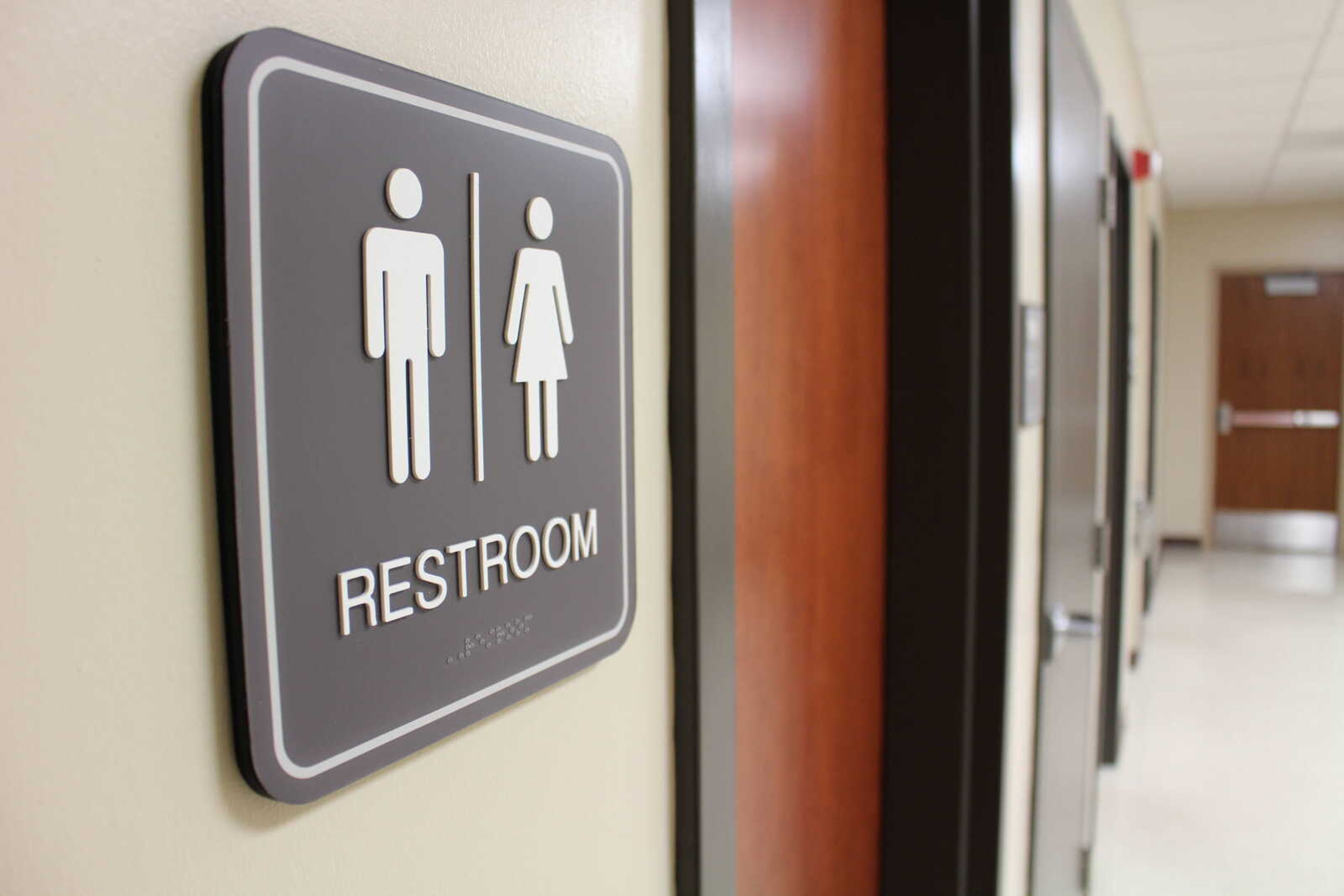Editor's note: The LGBT Advisory Board set an original plan for the gender-neutral bathroom signs to cost less than $200. Facilities Management spent $60 to $70 per sign plus the cost of labor to install the signs.
Southeast Missouri State University now offers 35 gender-neutral bathrooms around campus in response to requests from the LGBT community.
Last spring, Eric Mahnken, former president of PRIDE and member of the LGBT Advisory Board, brought the university a request to change all gender-conformed single-stall bathrooms at the university to gender-neutral facilities in order to better accommodate the lesbian, gay, bisexual and transgender community at Southeast.
“I don’t want to say I don’t feel accepted on campus, because it depends on how you look at it,” said Rylan Flesch, a transgender student at Southeast. “In the bathrooms? No, absolutely not. It doesn’t matter which one I go into.”
The LGBT Advisory Board and the LGBT Advocacy Committee found this discomfort unacceptable and came up with a plan to install 35 gender-neutral bathrooms around campus for less than $200.
“It’s as easy as just changing the sign on the door,” Mahnken said. “There are a lot of universities around us who already offer [gender-neutral bathrooms].”
After the issue was brought to university officials, they were quick to resolve the problem.
“It’s progress,” Flesch said. “It shows that the university cares.”
Gender-neutral bathrooms have been a controversial topic throughout the nation in 2016. In March earlier this year, North Carolina Gov. Pat McCrory signed a bill stating “Public agencies shall require every multiple occupancy bathroom or changing facility to be designated for and only used by persons based on their biological sex.”
In spite of the new law, several music artists such as Bruce Springsteen and Demi Lovato with Nick Jonas cancelled their shows in South Carolina.
“[Single-stall bathrooms] makes more sense than letting them go into multi-stall bathrooms,” president of AIM Student Ministries, David Peters, said.
There will not be any multi-stall gender-neutral bathrooms installed for now, but Flesch is grateful the university is taking steps in the right direction.
“If all bathrooms become gender-neutral then I do not think that is appropriate,” Peters said. “If there are some specific for the LGBT students then that is fine.”
Former Southeast staff member Megan Murray played a large role in bringing the facilities to campus.
“In talking with several students, I’ve been able to see how an issue like restrooms (that may be insignificant to some), greatly impact the lives of some of our students,” Murray said. ”I just want all of our students to feel safe and valued here, and this was just one way to help.”
“I have been in many multi-stall gender-neutral bathrooms, and there are no problems whatsoever,” Flesch said.
Gender-neutral bathrooms can be used for more than students who do not feel comfortable in gender-conforming bathrooms. Parents who have a child of the opposite sex may feel more comfortable in these facilities, as well as people who require attendants for living assistance.
The LGBT Advisory Board hopes this will open doors for future changes around campus. One of its more recent projects is trying to get preferred names on student IDs and class rosters rather than using certain students’ birth names.
“I go through the lunch lines or any place where staff needs to check my ID, and they misgender me,” Flesch said. “It’s the crappiest thing to go through.”
Mahnken said the beginning steps toward allowing preferred names on student IDs were positive; however, in the state of Missouri, student IDs are considered identification for voting, which requires the legal name. The project is still in progress.
Another hoped-for change for the future is gender-neutral housing, which Mahnken and Flesch said is their next big project.
Southeast is taking progressive steps, but Mahnken said there is more to be done.
“To see how much further the other schools have progressed is disappointing, but to see that we are making a step in the right direction is definitely positive,” Mahnken said. “I’m hoping in the future to see more steps in the right direction.”
The University of Missouri and Southern Illinois University in Carbondale already offer gender-neutral bathrooms.
“It’s going to be nice to go to a bathroom that I can actually go to without getting weird looks,” Flesch said.





